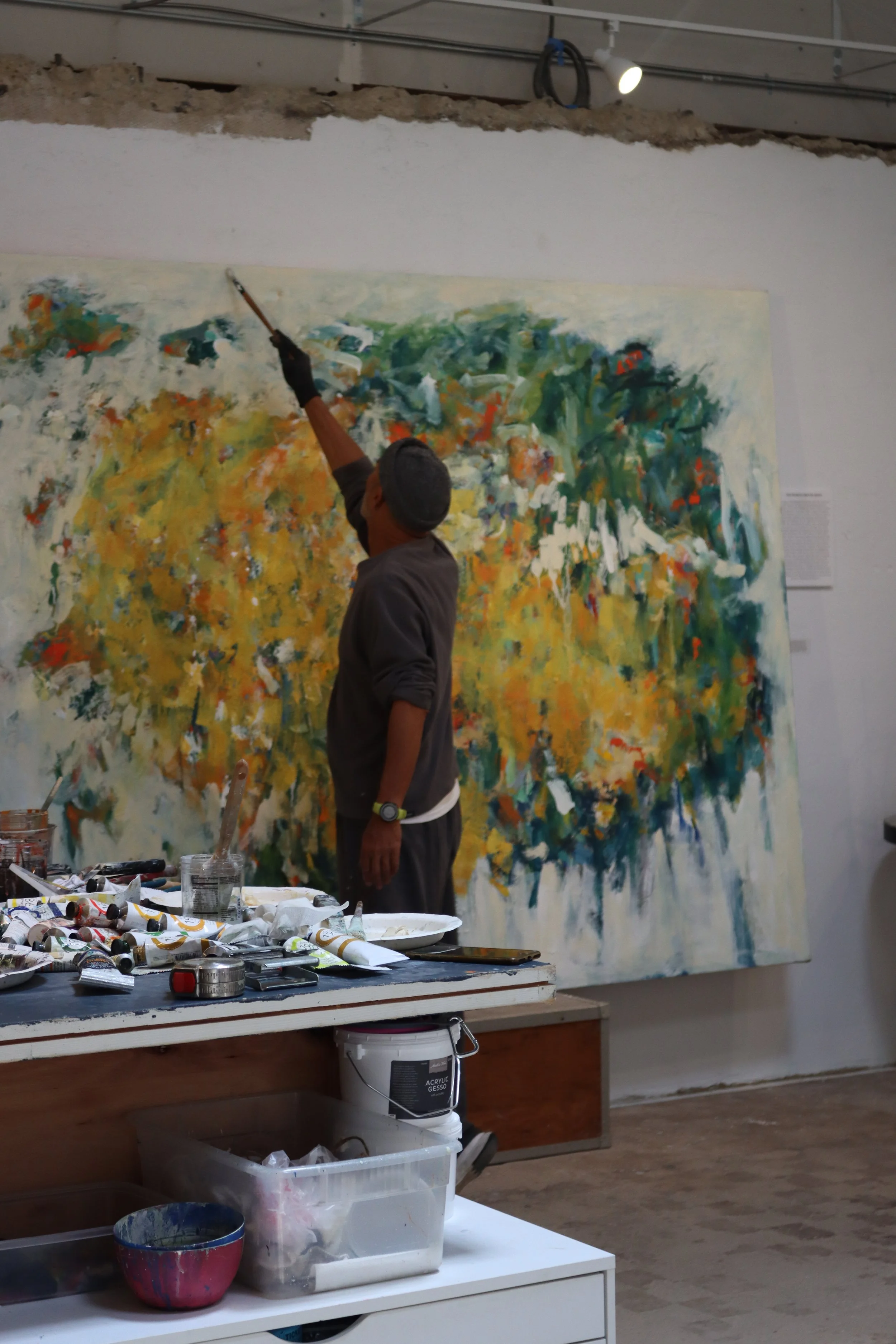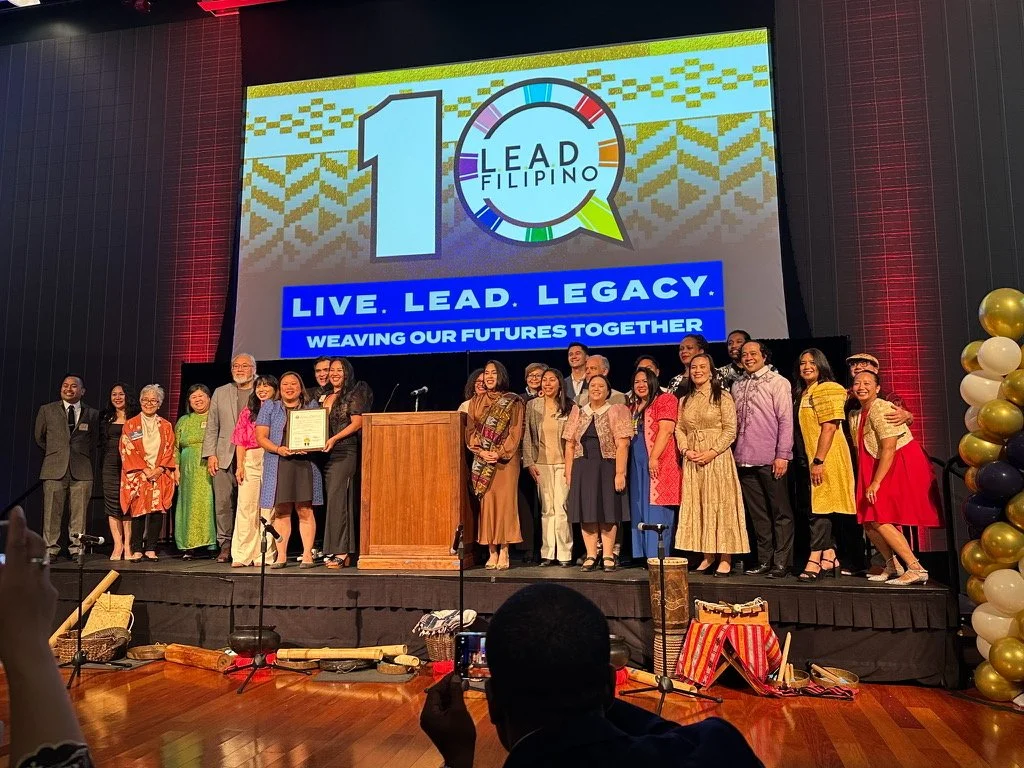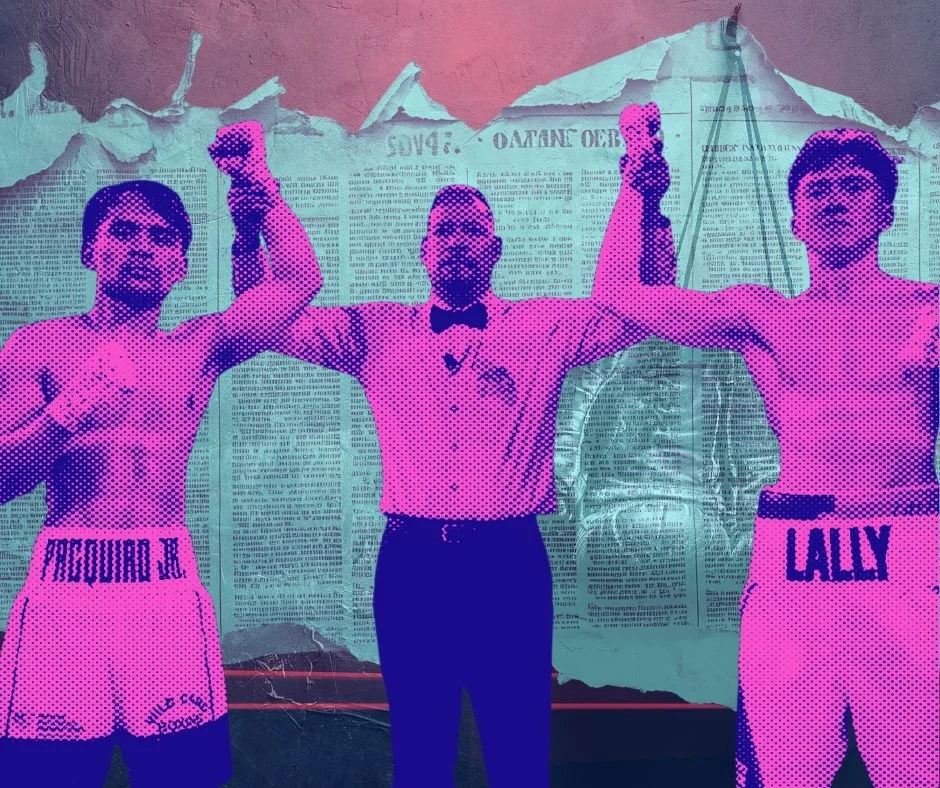What the new resistance looks like: Filipino Entrepreneurs Turning Commerce Into Change
Written by Clifford Temprosa
Filipino small businesses aren’t just open for business, they’re open for justice.
They may look like cafés, bakeries, restaurants, or barber shops, but I dare you to take one look closer. They’re also community organizers, cultural educators, disaster responders, and mutual aid hubs.
And in a system designed to extract from us, our labor, our language, our lineage, they’ve become sites of refusal. Because in a society that erases our history and flattens our identity into “hardworking immigrants,” Filipino entrepreneurs are saying: We are not just hustling for survival. We’re building for liberation.
Culture Meets Campaigns: How Filipino Businesses Are Mobilizing Movements
When a crisis hits, whether it is anti-Asian violence, deportation raids, or disaster relief in the Philippines. When the urgency to build power arises, whether it is political elections, town hall meetings, or policy advocacy, Filipino businesses don’t wait for grants, politicians, or publicity moments.
They launch fundraisers. Offer their venues to nonprofits. And convert their dining rooms into community meeting rooms and voter registration booths. They act.
Kalye - Rivington, Nestled in Manhattan’s Lower East Side, Kalye Rivington reimagines Filipino street food as a cultural statement and a political space. It’s not just a restaurant, it’s a platform. Kalye has hosted fundraisers, know your rights workshops, queer drag nights, and celebrations for Filipino Heritage Month that double as voter education events. With walls adorned in Filipino artwork and live OPM nights, Kalye Rivington bridges tradition and resistance in every dish.
Dare to Change Consulting, Inc. is an Asian-owned strategy firm founded by Clifford Robin Temprosa Li, powering social impact through culturally responsive consulting, community-centered research, and movement-rooted storytelling for nonprofits, social enterprises, and political campaigns. The firm has secured over $30 million for immigrant-led nonprofits while offering services that span fundraising, strategic planning, public policy and advocacy training, government relations execution, video production, and social media management. Whether designing voter engagement campaigns, writing compelling and creative grants, launching capital fundraising efforts, or reframing nonprofit narratives through data and digital storytelling, Dare to Change doesn’t just build visibility, it builds infrastructure for power, equity, and long-term change.
LIKHÂ Homewares is where Filipino tradition meets global design, without exploitation in between. Founded by Nathalie Lim, the brand partners with artisan communities across the Philippines to craft baskets, ceramics, and home goods rooted in heritage. But more than aesthetics, LIKHÂ is about economics: every item is made through Fair Trade or Nest-certified labor, with artisan partners earning more than standard wages. It’s co-creation. Not outsourcing. LIKHÂ’s work resists the global design industry’s colonial legacy by prioritizing local authorship, ancestral techniques, and cultural pride. In every fiber and weave, LIKHÂ reminds us: Filipino craft doesn’t need saving. It needs resourcing.
Rags2Riches isn’t just a fashion brand, it’s a supply chain rebellion wrapped in purpose. Founded by Reese Fernandez-Ruiz, R2R transforms discarded fabric into high-design apparel and home goods, co-created with artisans from some of Metro Manila’s most marginalized communities. But this isn’t charity, it’s equity by design. Every product funds a larger ecosystem: one that includes financial literacy, health access, skills training, and micro-entrepreneurship. R2R has diverted over 800 tons of textile waste from landfills while redirecting wealth into communities often locked out of the fashion economy. The result? A brand that proves sustainability isn’t just about the planet, it’s about people, dignity, and creative agency.
These business models are proving that Filipino business is not apolitical. It is deeply personal. And it is strategically powerful.
Honoring Our Elders: The First Wave of Community Builders
We didn’t start from scratch. The corner stores, remittance centers, and sari-sari shops of our immigrant parents and elders laid the groundwork for today’s movement-minded businesses.
They may not have called it “impact,” in what we hope to aim for today, but they kept doors open after church, extended credit to struggling families, and sent balikbayan boxes filled with hope. Their survival was our seed funding.
This new generation, armed with social media, solidarity language, and startup strategies, is simply building on a legacy of care that’s always existed in Filipino entrepreneurship, both here and in the Philippines.
Reframing the Narrative: From Ethnic Economy to Cultural Defense
Filipino businesses are often reduced to “mom and pop shops” or “ethnic vendors.”
But this framing erases their complexity, and their power.
What we call an ethnic economy is often just another way of saying: “You built this because the system didn’t.”
So let’s tell the truth. These aren’t small businesses. They are cultural defense economies.
They preserve language when schools don’t. They create jobs for immigrants without papers. They offer care where clinics fail. They make visibility possible in neighborhoods that otherwise ignore us.
These aren’t businesses simply surviving capitalism, they’re reshaping what power looks like within it. Filipino entrepreneurship isn’t an act of charity. It’s a blueprint for self-determination, community protection, and liberation.
How Filipino Business Owners Can Build Impact Platforms
If you own a business, you hold platform power, and with intention, it becomes a tool for organizing. Here's how:
Sell with Strategy
You’re not just selling goods, you’re shaping narratives.
Tie your products to purpose. Feature local artists. Launch collections that honor heritage, challenge stereotypes, and educate. Use every sale as an act of cultural storytelling. Let your merchandise carry memory, meaning, and movement.
Turn Your Space into a Hub
Your space is more than a shop, it’s sacred ground. Open your doors for voter drives, teach-ins, healing circles, and mutual aid. Let your storefront become a safe haven for joy, resistance, and belonging. A business with four walls can still hold a whole community.
Partner with Nonprofits Like Co-Conspirators
Partnership isn’t a photo op, it’s power sharing. Collaborate with Filipino-led orgs. Co-create events. Share resources. Build campaigns that outlast a single fundraiser. Solidarity means building together, not branding together.
Center Your Values in Every Business Decision
Your brand is political, even when you try to be neutral. Embed your values in who you hire, what you sell, and how you show up. Let ethics, not algorithms, guide your decisions. Neutrality protects systems. Values protect people.
Make Your Workplace a Site of Dignity
Impact starts with how you treat your own team. Pay fairly. Respect caregiving and cultural holidays. Uplift workers who are queer, undocumented, disabled, or new to the city. If your business isn’t safe for your staff, it isn’t safe for your community.
Think Multilingual, Multigenerational, and Multicultural
Your audience isn’t monolithic, so your messaging shouldn’t be. Translate your materials. Celebrate elders and youth alike. Connect with other communities of color. Language access and cultural fluency aren’t extras, they’re equity.
Don’t Just React to Crisis, Invest in Joy
Joy is not a distraction. It’s a strategy. Host karaoke nights. Sponsor art shows. Create spaces where we can breathe, laugh, and remember who we are. We’re not just surviving, we’re softening the soil for something better.
Audit Your Supply Chain & Materials
Your products tell a story, make sure it’s one you’re proud of. Source from ethical Filipino vendors. Cut waste. Center artisans and farmers. Decolonized business is not just aesthetic, it’s systemic.
Build Legacy, Not Just Hype
Virality fades. Legacy lasts. Mentor others. Archive your story. Set aside resources for the next generation. You’re not just building a brand. You’re becoming an ancestor.
These aren’t side missions. These are survival strategies. And when coordinated, they become liberatory infrastructure.
A Call to Filipino Readers: Romanticizing the Hustle Isn’t Enough
Let’s be honest. As a community, we celebrate Filipino entrepreneurs, until it’s time to resource them.
We show up for grand openings, take selfies at kamayan pop-ups, and tag them in “support small business” posts. But when they ask for capital, collaborations, or policy change, we go quiet.
So ask yourself:
Have I romanticized the hustle more than I’ve resourced it?
Have I called it inspiring but not strategic?
Have I treated Filipino entrepreneurship as a story, but not as a site of power?
Because if we truly believe in Filipino excellence, we need to stop expecting entrepreneurs to carry the weight of the community without investment, protection, or infrastructure.
A Call to Non-Filipino Readers: Invest Like It Matters
Don’t tokenize Filipino-owned businesses in your “diverse vendor list.” Don’t just include them during Heritage Month or AAPI Day.
Fund them. Contract them. Partner with them long-term. Because these businesses are doing what many institutions fail to: Serving our people without apology.
From Storefront to Strategy: What’s Next
Filipino entrepreneurs are already creating impact. Imagine if we built systems around them, rather than in spite of them.
A nationwide Filipino business directory tied to grassroots campaigns.
Heritage food vendors paid to feed protesters and community events.
Cultural boutiques turned voter hubs during election cycles.
Clothing brands funding bailouts or language justice projects.
The revolution isn’t in merely in a grant proposal. It’s in the kitchen. The pop-up. The barong barber shop that became a neighborhood anchor.
We just have to stop seeing these businesses as side hustles, and start seeing them as movement tools.
Final Word: Stop Shopping. Start Building.
So yes, buy the halo-halo. Sip the kapeng barako. Wear the barong. Rep the haircut. But also ask:
1. What else can this business become?
2. What power is it already holding?
3. How do we build with it, not just consume from it?
This is how we decolonize and shift away from an uber capitalistic consciousness. Because Filipino businesses aren’t just the soul of the community. They are the strategy. They are the infrastructure. They are the future economy we’ve been dreaming of.
We don’t just need economic inclusion, we need economic liberation. Let’s stop applauding the hustle. Let’s start funding the hustle.
































When the Avengers: Doomsday one-year countdown dropped, audiences didn’t just watch. They paused, replayed, shared, and even speculated about hidden messages. A week later, the clip surpassed 14 million views, becoming a viral moment picked up across major media outlets that fueled anticipation for the next chapter of the Marvel Universe.
The countdown video was the result of a collaborative effort led by AGBO and its studio partners. Supporting the marketing team as a contracted editor was Joshua Ortiz (@joshuajortiz), a Filipino American filmmaker whose career has steadily built toward opportunities to contribute to projects of this scale, alongside earlier success with the short films he has written and directed.